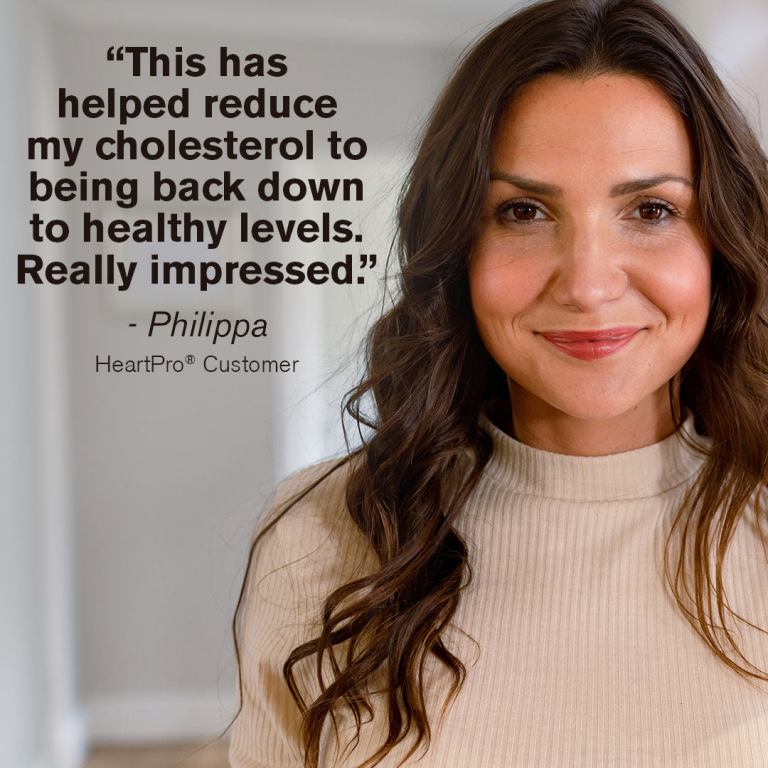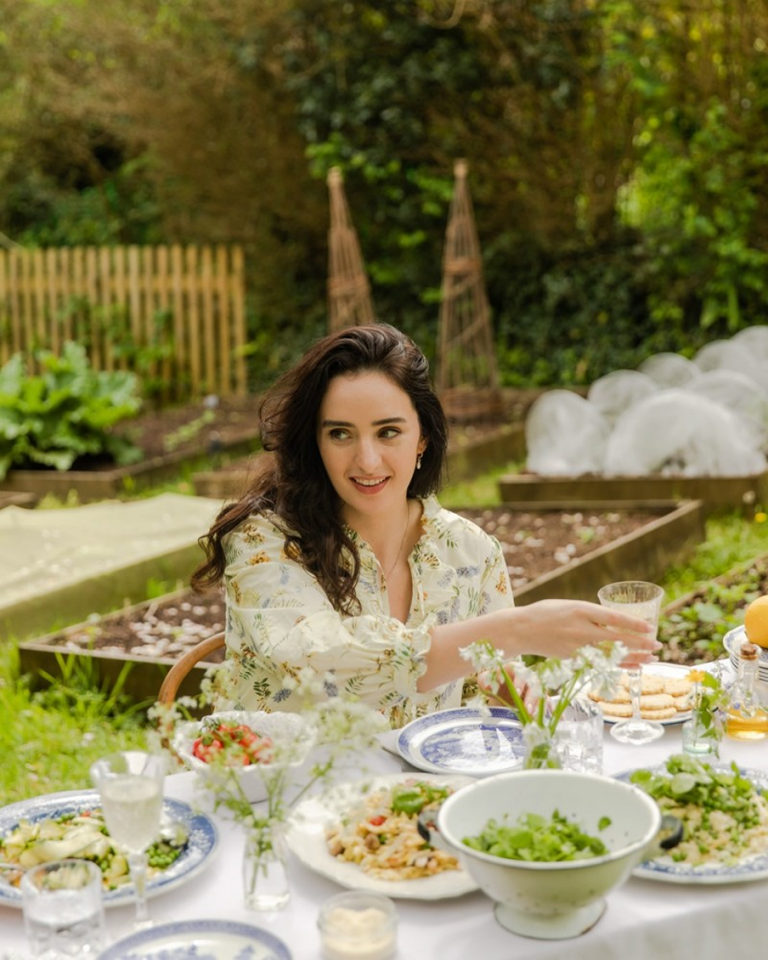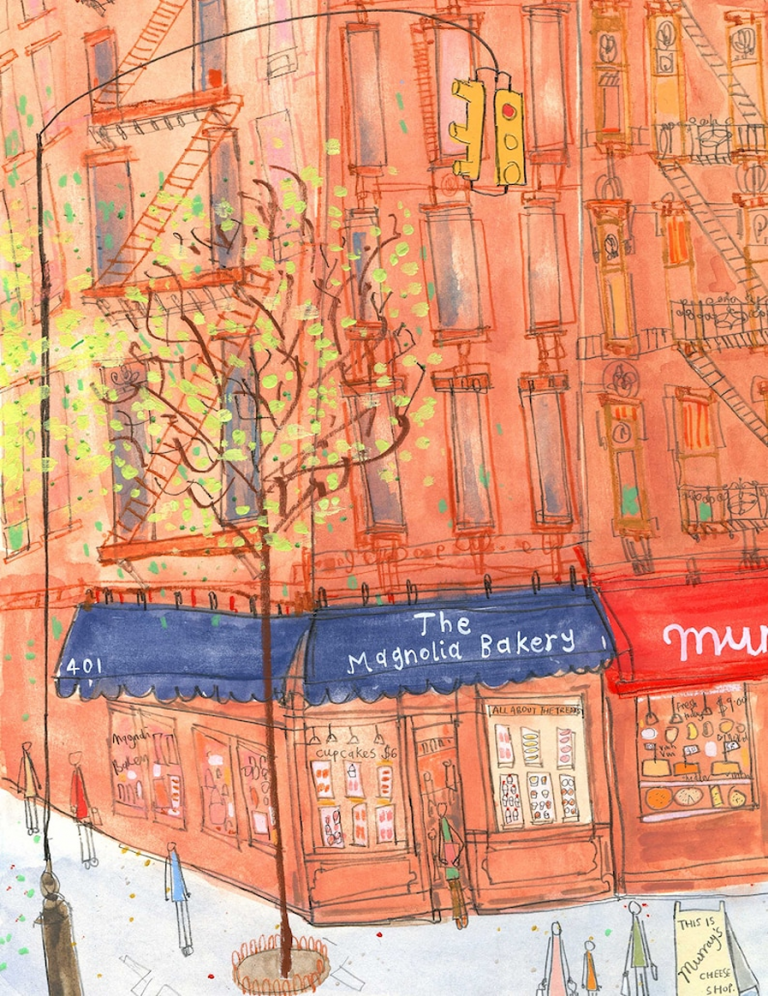
Toast Brewing replaces 25% of brewing yeast with surplus sandwich loaves and ‘heel ends’ from bakeries. So far saving 3 million slices of bread from going to landfill, other malt is bought from regenerative farmers, with spent grains collected by local farmers.
The company also gives 100% of profits (after costs and staff salaries) to good causes, mostly to a food waste charity.
Volunteers for its Gleaning Network turn surplus farm produce into free meals, and once even cooked a dinner to ‘feed the 5000’. Jesus would be proud! Tristram is Toast Brewing’s ‘Golden Shareholder’, to ensure it never ‘sells out’.
Although beers use bread without seeds, nuts, fruits or vegetables (to avoid flavour contamination), upcycled ingredients means there are no allergy guarantees. The company also does not use oily bread – so no focaccia beer!)

Choose from:
- Grassroots Pale Ale (peaches, passionfruit & pineapple)
- Rise Up Lager (an English Helles-style beer)
- New Dawn Session IPA (punchy citrus & floral notes)
- Changing Tides (0.5% low-alcohol citrus-spice lager)
Saving Bread, Saving the Planet
Toast Brewing uses upcycled bread at the heart of their recipes. Each slice replaces some of the barley that would usually go into beer. By rescuing bread, they reduce food waste and give new life to what others throw away.
This lowers demand for extra crops, cuts greenhouse gas emissions and keeps our bins a little emptier.
Clear Taste Backed by Quality

Surplus bread doesn’t mean lower quality or odd flavours. Toast beers taste crisp and fresh. The bread brings gentle notes, adding to the depth of the drink.
You’ll find the same quality and finish you’d expect from any top beer. Every pint is proof that no taste is lost by making use of good leftover bread.
Supporting a Circular Economy
Toast Brewing backs the idea of using resources again and again. When you buy their beer, you support a system that makes more from what already exists.
The company works closely with bakeries and charities, turning extra bread into something enjoyable and worthwhile.
Clear Values and Honest Business
Toast Brewing stands for more than just flavour. They’re a certified B Corp, putting purpose before profits. They give all their profits (after costs) to charities fixing the food system. When you choose Toast, you’re supporting real change, not empty promises.
The Power of Community

Toast Brewing works with local bakers, pubs and shops. This builds strong links in the community, keeping jobs and money where they’re needed most. Buying Toast means joining a group effort to make waste a thing of the past, one beer at a time.
Eco-Friendly Packaging
Those keen on cutting waste will like Toast’s approach to packaging. Bottles, cans and cases use recycled materials where possible. Labels show the company’s care for every detail, from what’s inside to how it’s delivered. You can enjoy a pint, knowing the planet comes first.
A Chance to Start a Conversation
A Toast beer in your hand is more than just a drink. It sparks interest and shares a story. It’s a simple way to talk with friends or family about food, waste and better choices. Every bottle or can opens the door to honest chats over shared pints.

Crumbs Brewing has made a name for itself in Surrey by turning leftover bread into award-winning beer. This list shares everything you need to know about how one small local brewery uses old bread to create great-tasting beers while fighting food waste.
From their unique brewing process to their positive impact on the Surrey community, you’ll see why their story deserves a toast. Enjoy these friendly facts served with a warm heart.
Born in Surrey: Good Beer and Less Waste
Crumbs Brewing started in Reigate, Surrey, after the founders saw how much bread supermarkets threw away each week. Inspired to fix the problem, they set out to make tasty beer using bread that was too old for the shops but still good for brewing.
Their love for local flavours and the Surrey countryside shapes everything they do.
Old Bread, Fresh Beer: How it Works

The team replaces a third of the malted barley in each brew with surplus bread. This old bread, from local bakers and shops, gives each batch a natural character.
By using unsold loaves that would be tossed, Crumbs Brewing keeps their ingredients simple and honest. The process brings out unique notes in every beer, whether using sourdough, rye or white loaves.
Saving Surplus Bread From the Bin

Every bottle of Crumbs beer stops about one slice of bread from going to waste. In a year, the brewery rescues thousands of loaves that would end up in landfill.
These efforts help local bakeries and shops reduce their waste while showing how old bread still has value. It’s a practical and tasty way to fight food waste in Surrey.
Each Crumbs brew celebrates a different bread. The range (all vegan bar the Naan bread lager which contains milk) includes:
- Unwasted Hazy APA – brewed with sourdough and notes of mango, fresh berries and stone-fruits.
- Bloomin’ Amber Lager – brewed to a Vienna recipe, with a malty finish.
- Rye Ruby Ale – a dark warming beer, ideal in front of the fire
- Sourdough Pale Ale – a refreshing zesty beer
Supporting Local Bakers in Surrey

Crumbs partners with bakeries across the region, including Chalk Hills Bakery and other family-run shops. They also give back to local causes, support food charities, and run tasting events at markets, pubs and fairs.
This focus on community keeps their work grounded in Surrey’s rich food scene, bringing people together over a pint with a purpose.
Inspiring Others to Brew Differently
Crumbs Brewing’s success has inspired other breweries and shops across the UK. They show that you can have great beer without wasting food or cutting corners. Their story nudges more people to try sustainable brewing at home or support businesses that rethink waste.

Brewgooder stands out in the world of beer for more than its refreshing taste. This brand pours purpose into every pint, helping fund clean water projects in countries that need it most.
The company founder caught a parasite from dirty water while travelling in Nepal and since then, the company uses profits to build clean water projects worldwide.
Never buy beers in plastic rings. They are invisible in water, and can get stuck around the necks and beaks of birds. If you see any, rip the holes, and securely bin them.
100% Vegan Ingredients
Brewgooder uses only plant-based ingredients, making its beer suitable for vegans. Many beers use animal-based finings for clarity, but Brewgooder finds clear, crisp results without them. You get all the flavour without the compromise.
This means whether you’re vegan for health, ethics or the planet, you can raise a glass without worry.
Every Can Helps Fund Clean Water

For every can of Brewgooder sold, a part of the profit goes straight to clean water projects. The brand works with trusted partners to fund wells, boreholes and sanitation programmes in communities without safe drinking water.
Support That Reaches Across the Globe
Brewgooder’s reach spans many countries, from Malawi to Nepal. These projects bring more than water—they support schools, reduce disease, and free up time for children to learn and play.
Award-Winning Brews with Broad Appeal

Brewgooder doesn’t just do good, it tastes good too. Their range is brewed with quality hops and malt. These beers have won taste awards, showing you don’t have to sacrifice flavour for ethics. Crisp, clean and balanced, they suit a summer BBQ or a cosy night in.
The range includes:
- New England IPA (hazy and juicy)
- Lager (crispy and zesty)
- Session IPA (hoppy and light)
- Hazy IPA (soft and citrusy)
- Tropical Ale (fresh and fruity)
Climate Conscious Brewing
Along with vegan principles, Brewgooder takes climate action. The brewery uses renewable energy where possible and chooses partners that share a green approach. Packaging is fully recyclable, from cans to boxes.

The average adult in England drinks around 6 units of beer each week (we think that’s around 3 pints, but maths is not a strong point!)
That means millions and millions of pints and cans and bottles sold nationwide each year. Generating profits for huge companies that are not even based in England.
So these beers not only support local artisans, they are also vegan-friendly (no filtering with isinglass made from fish bladder).
And they also are all packed in cardboard (not plastic rings, which cause havoc for wildlife – rip up and bin any you see).
What makes these beers extra-special, as that they generate profits for wild creatures, via donating a portion of sales to various charities.
How much better does your beer taste, knowing it’s helping to prevent wildlife crime or funding cheetah conservation?
Beers to Help Endangered Species
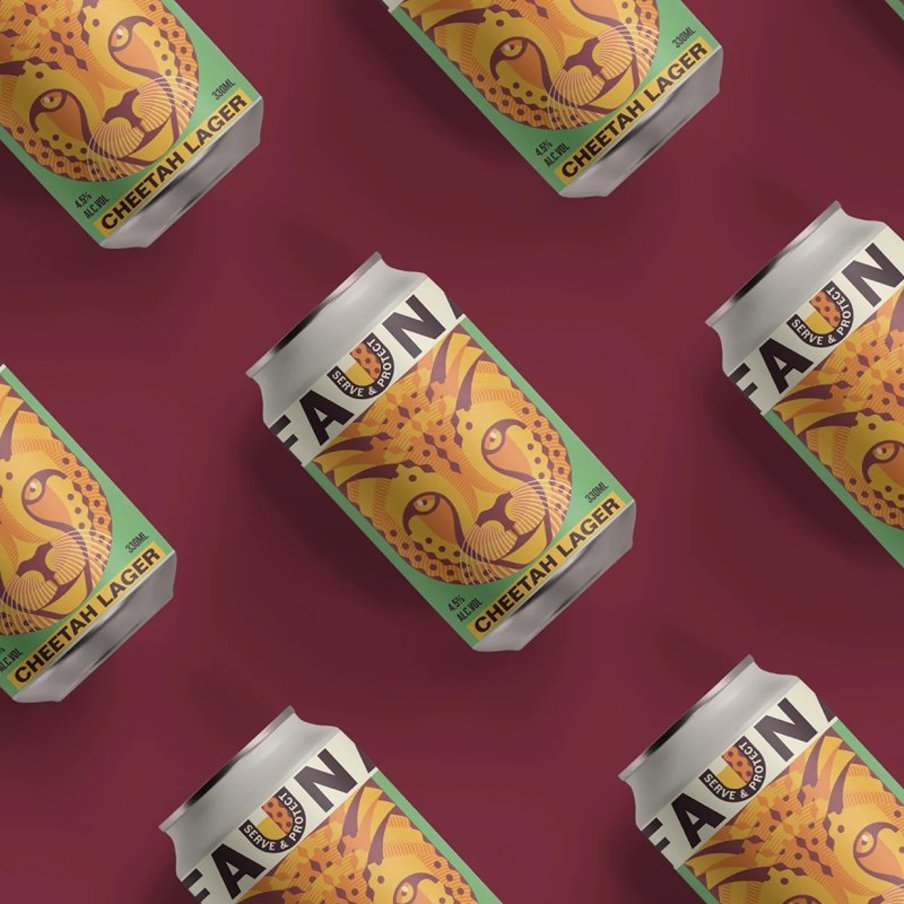
Fauna Brewing is a wonderful company, that makes cans of beers, each one with lovely illustrations to denote which creature your beer-supping is helping.
Brewed near the beautiful West Sussex town of Arundel, you can also buy variety packs. The range includes:
- IPA (helps African wild dogs)
- Cheetah Lager (helps the fastest land animal)
- Cheeky Chimp (a low-alcohol beer)
Low-Alcohol Table Beer (to help pangolins)

Pangolin Beer is the low-alcohol offering from Fauna Brewing, which uses profits from all its beers, to help endangered species. Other beers help chimps to cheetahs! This beer boost lots of oats for a silky mouthfeel, an ideal vegan-friendly table beer.
Pangolins may look like anteaters, but they are not related. Covered in scales, they (like hedgehogs) roll into a ball when threatened.
They eat insects with their 2-foot long tongue. These beautiful creatures are now critically endangered, horribly abused for wildlife crime.
Boycott Plastic Beer Can rings
Some supermarkets have now banned the sale of beers wrapped in plastic rings. Please don’t buy them as they suffocate and injure birds and wildlife, as they are invisible in water.
If you see any, just rip the holes and put them in the nearest litter bin. Or ideally place them in local supermarket bag bins, where they can be recycled.

E6PR is the very ‘name doesn’t roll off the tongue’ for an incredible invention that could save millions of birds and wildlife. Although some supermarkets have now banned their sale, those plastic can holders that surround many beers and ciders are lethal to wildlife.
Invented by a team of brainy engineers, these are the gold-standard and used worldwide for many brands of beer. If you don’t already pack in cardboard, you can order test packs in different sizes, to ‘try before you buy’.
It’s known that consumers will always pay a few pence more, for items that are good for wildlife and the planet.
It’s unclear why plastic beer can holders are still on sale following the single-use plastic ban, but they appear to be around, as you often find them littered on the street.
Although sometimes advertised as ‘biodegradable’, this takes months and meanwhile they are invisible, so get caught around necks of wildlife, or are accidentally ingested as microplastics. If big brands like Stella Artois can manage to pack their beers in cardboard, so can the others.
Many creatures have been found trapped in plastic beer/cider rings. These include seagulls, sea turtles, squirrels, cats, ducks and hedgehogs (one was found dead in Swindon, having suffocated when getting trapped in a discarded one).

This company can also offer various compostable options for food service, as an alternative to plastic. Whilst politicians and media pundits waffle on about reducing litter and plastic waste, it’s small companies like these, that are actually ‘walking the talk’ and finding solutions that could be implemented today.
Raise Money By Recycling Cans
A third of all canned drinks are enjoyed away from home, so setting up a can recycling scheme with Every Can Counts is a great idea. Just order a free starter pack for your community centre, church or shop, then people can drop off cans.
You can then earn money with local scrap metal merchants, and give the funds raised to your favourite local cause. It’s a no-brainer way to help small charities. Buy a £10 can crusher (foot-operated) to squash cans down, to make room in the recycling bin.
How to Brew Your Own Beer

Most people in England like a nice pint of beer. And if you drink or serve a fair bit of it, it may be worth learning how to make your own beer. We have good brands of artisan beers (including no-alcohol ones). But if you want to brew your own, here is the information you need.
Brewing is a skill that requires some studying as you have to know how to properly sanitise the beer for safety and then how to either put it in bottles or kegs.
You’ll also need to invest in a few pieces of equipment (like a brew kettle and mash run), and obviously find a safe space to brew in. Plus you’ll need to buy your beer-making ingredients like malted barley or malt, alongside hops and brewing yeast.
Home Brew Beer is a book to show you every step to make your own beer, with 30 spreads on home brewing techniques, alongside 110 recipes and 100 photos.
Learn how to choose the best malt, yeast and hops, and learn the base equipment you need to get started. Each recipe is suitable for the full-mash technique. Beer recipes include:
- London bitter
- American IPA
- Imperial brown ale
- Munich helles
- Ginger Beer
- Blueberry stout
- Belgian tripels
- Bohemian pilsner
- Mexican cerveza
Brass Castle Brewery (vegan Yorkshire beer)
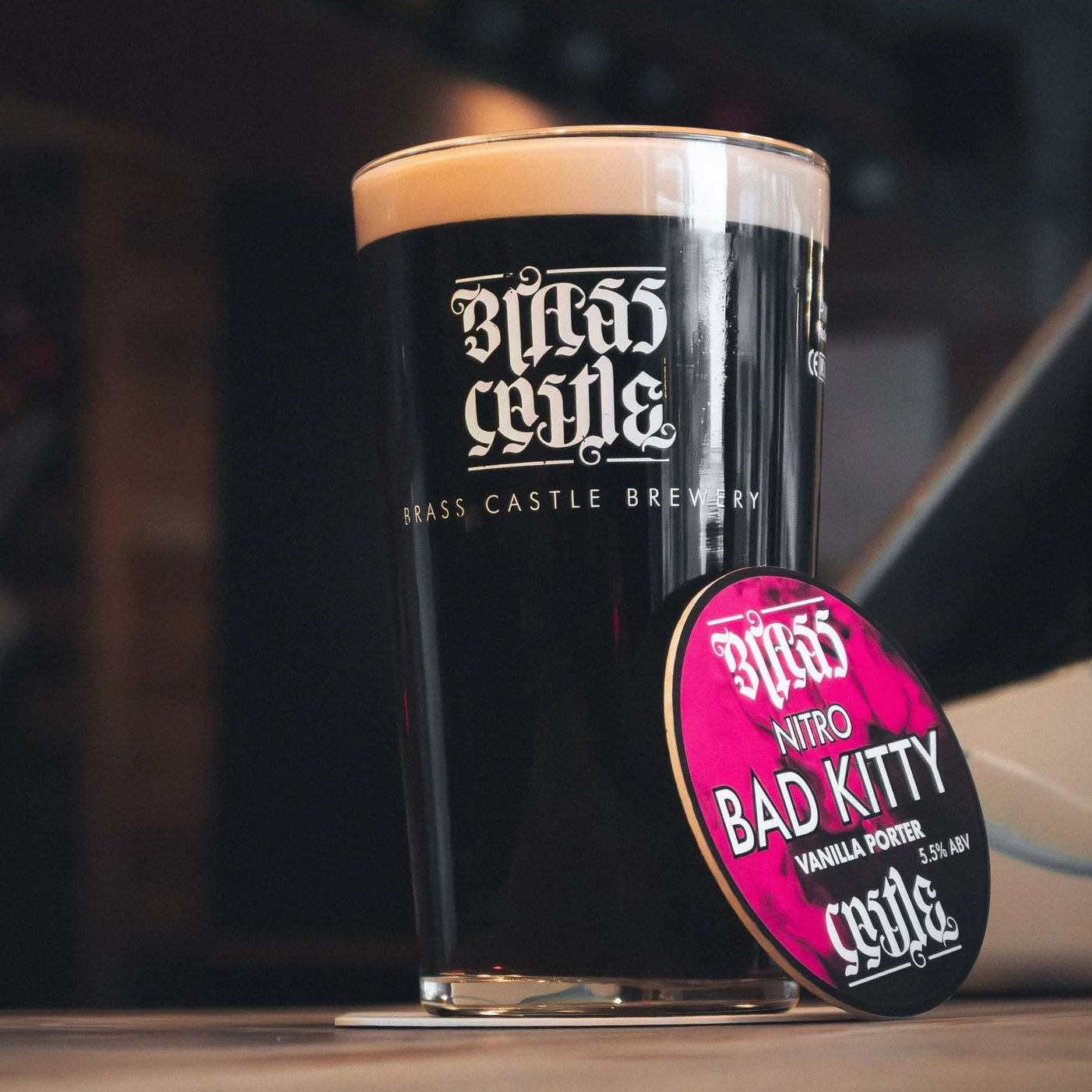
Brass Castle Brewery in Yorkshire offers not just canned beers, but vegan cask ale too, proving that no brand needs to filter through animal bones or fish bladders.
You don’t have to crush cans, before recycling. But do pop the ring-pull back over the can before popping in the recycling bin. This helps to avoid wildlife getting caught inside. Set up a can recycling program to raise money for your community!
The Story of Brass Castle Brewery
Brass Castle is built on a simple belief that beer should be noble, and that you can make it well without using animal products. From its base in Malton, the brewery has grown from a close-knit group of friends into a respected producer with national reach. The focus has always been on flavour and a Yorkshire sense of pride.
The team champion traditional cask ale, with a modern, hop-forward twist. They work with quality ingredients and a clean process that keeps the beer bright and expressive. Right from the start they chose not to use animal-based finings like isinglass, which are still common in British brewing.
From racking casks to seaming cans, much of the work is handled on site, which keeps standards tight while allowing for seasonal creativity. Spent grain and hops do not go to waste, they go to an anaerobic digester where microorganisms turn them into biogas and fertiliser. That approach reflects a wider commitment to brewing ethically and sustainably.
Awards have followed, including recognition from industry bodies and independent judges, and their beers have poured far beyond Yorkshire. Yet Brass Castle remains rooted in Malton, and you can feel that connection at their Taphouse. It is the best place to try their freshest releases, catch a quiz, or join a tap takeover, and it anchors the brewery in its local community.
Roots in Yorkshire Craft Brewing
Yorkshire has a long brewing heritage, and Brass Castle wears that badge with intent. The early days were hands-on and modest, with production growing steadily as demand rose. Today, the brewery produces modern Yorkshire beers with a clear identity, balancing approachability and character.
A key milestone was establishing a crisp, hop-led pale ale as a calling card for the brand. Bright citrus notes, a firm malt backbone, and a clean finish made it a fixture in pubs and bottle shops. Crucially, the brewery stuck to vegan-friendly methods for clarity. Rather than using isinglass, they rely on natural settling, careful temperature control, and modern filtration. That choice shaped their ethos and their flavour profile.
Commitment to Ethical Practices
Brass Castle is fully vegan, which means no gelatine, no isinglass, and no animal-derived processing aids. The entire range is brewed to be vegan friendly, and it carries gluten-free certification, so it suits a wider audience. The brewery draws on high-grade hops and malts, and where possible supports producers that share a similar outlook on quality and responsibility.
Sustainability sits beside taste. Spent grains and hops are sent to an anaerobic digester, diverting waste and producing energy and fertiliser. Water use is considered, processes are designed to reduce waste, and the brewery favours local supply chains. These choices echo a wider shift in UK craft beer toward plant-based methods and transparent ingredients.
Why Choose Brass Castle’s Vegan Beers?
Vegan beer is about more than ethics. It is also about clarity of flavour. By skipping animal finings, Brass Castle lets the beer settle naturally or uses modern, vegan alternatives. That keeps hop aroma, malt character, and yeast expression front and centre. Drinkers get a pint that tastes honest and intact.
For vegans, this removes guesswork. Many traditional beers can hide animal products in the process, even if the label looks clean. Brass Castle avoids that and labels with confidence. People with coeliac disease or gluten sensitivity can also drink with ease, as the beers are gluten-free certified. That combination, vegan and gluten-free, is rare in British brewing and makes the range inclusive.
Interest in plant-based choices keeps rising in England, and beer is part of that picture. More than a million people now identify as vegan, with many more cutting back on animal products. Brass Castle meets that demand without trading away taste. You can expect bright pales, rich dark beers, crisp lagers, and creative specials that suit different moods and menus.
Pairing is straightforward. A citrusy pale ale loves salt and vinegar crisps, grilled veg skewers, or a spicy tofu burger. A roasty porter shines with a slice of vegan chocolate cake or a scoop of dairy-free vanilla ice cream. Quality brewing makes food matching simple.
Health Perks of Plant-Based Brewing
Vegan beer can suit drinkers with allergies to animal products, since no fish or gelatine is used to clarify. Natural settling and modern filtration techniques help keep the flavour clean, without adding animal-derived agents. Some drinkers also prefer unfiltered or minimally processed beers for their fuller mouthfeel.
Brass Castle’s range is made for everyday enjoyment. The gluten-free certification adds peace of mind, and the straightforward ingredient lists make choices easier for people who track what they consume.
Taste and Variety in Their Line-up
Expect range and balance. Pale ales lean into citrus, pine, and stone fruit from bold hop varieties, while keeping a crisp finish. Stouts and porters bring layers of coffee, cocoa, and toasted grain. Seasonal releases add fruit-led sours, stronger IPAs, or malt-forward specials, depending on the time of year.
Vegan brewing does not limit flavour. Hops supply bite and aroma, malts give depth and colour, and yeast adds subtle esters. The result is a line-up that feels complete, from low-ABV session beers to more robust, contemplative pints.
Must-Try Vegan Beers from Brass Castle
Brass Castle’s core range covers everyday styles, supported by specials that keep things fresh. Availability changes, so check local pubs, trusted bottle shops, and the brewery’s own channels for the latest. The Malton Taphouse is the best starting point for current taps, takeovers, and limited releases.
- Bright pale ales: Around 4 to 5 percent ABV, with zesty citrus and light pine. Ideal for pub nights, barbecues, or pizza with friends. Often available in cask, keg, and cans.
- Modern IPAs: 5 to 7 percent ABV, with juicy hop character and a firm finish. Good for curry nights or bold, spicy vegan dishes.
- Rich porters and stouts: 5 to 6.5 percent ABV, layered with chocolate and roasted coffee notes. Perfect by the fire or paired with vegan brownies.
- Crisp lagers and Kölsch-style beers: Clean, snappy, and food-friendly. Great with tacos, salads, and tempura veg.
- Seasonal specials: Fruit-forward sours, dark winter warmers, and hop-driven one-offs. Catch them at the Taphouse while they are fresh.
For home tasting, chill cans to style, use clean glassware, and line up a simple pairing. Try salted almonds with a pale ale, grilled mushrooms with a porter, or citrus-marinated tofu with a hoppy IPA. If you prefer drinking at source, the Taphouse typically opens Tuesday to Sunday, with extended hours on Friday and Saturday, and regular events that showcase new pours.
Signature Pale Ales for Everyday Enjoyment
Brass Castle’s pales are designed for balance. Expect bright hops from American and Southern Hemisphere varieties, backed by a light, biscuit-like malt base. Most sit around 4 percent ABV, which suits longer sessions without losing flavour. You will find them in cask for that classic pub feel, and in bottles or cans for the fridge at home.
Bold Stouts and Porters for Cosy Nights
When the weather cools, their dark beers come into their own. Roasted malts bring chocolate, espresso, and caramel tones, while a smooth body keeps each sip satisfying. Look for higher ABV options for special occasions, and pair with vegan chocolate tart, sticky toffee pudding, or salted caramel ice cream for a simple, indulgent match.
Stroud Brewery (vegan cask & bottled beers)
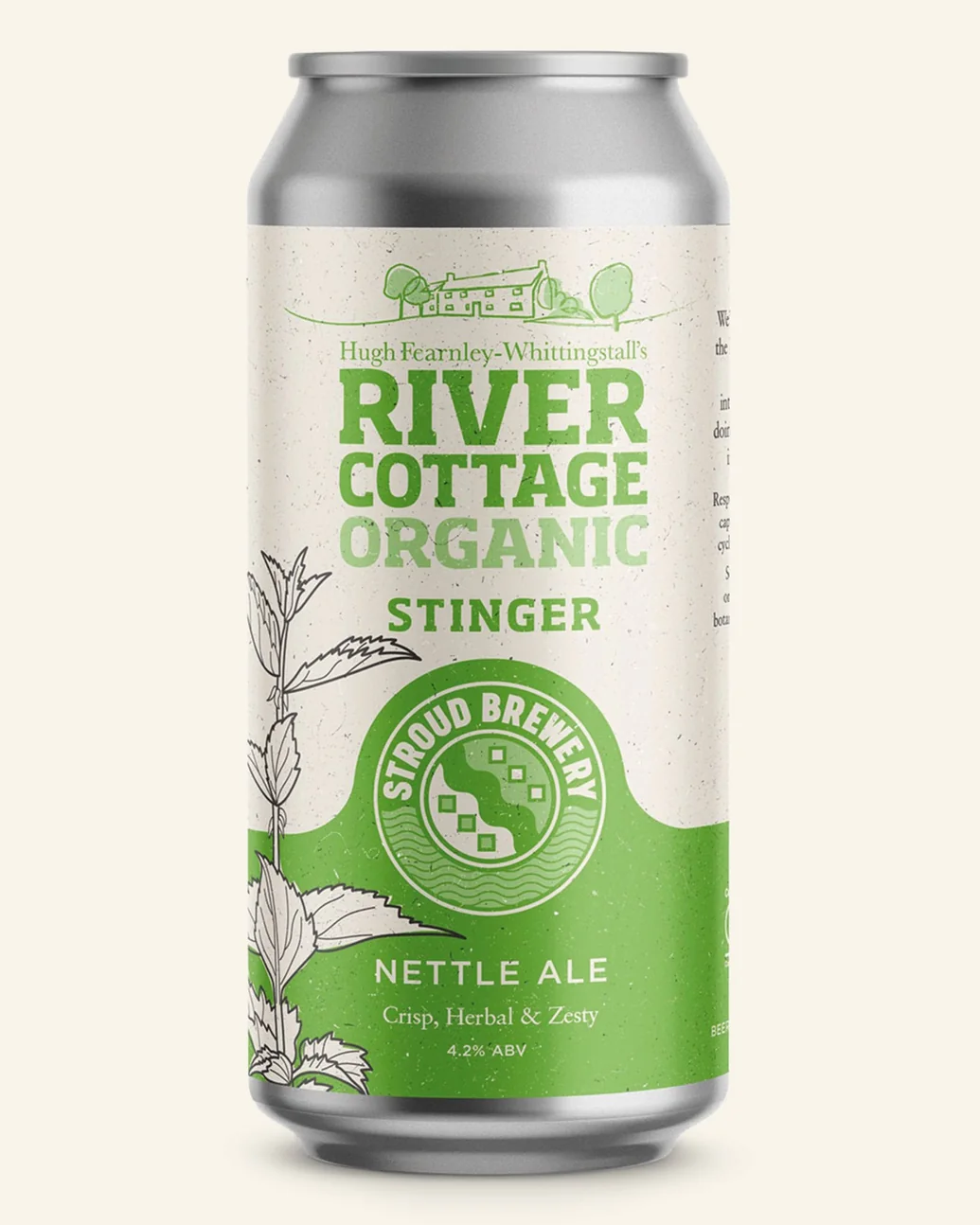
Plant-based drinking is no fad in British beer. It is a practical shift that speaks to taste, ethics, and sustainability. In Gloucestershire, Stroud Brewery has been quietly proving that vegan beer can be full of character, at home or in pubs.
This independent brewery keeps things simple. It brews with natural ingredients and avoids animal products like isinglass. The result is clear, flavourful beer that suits vegans and non-vegans alike. If you want beer that respects the environment and still tastes brilliant, Stroud shows how it is done.
Stroud Brewery has recently changed its cask ale to vegan too, pubs and hotels can order from the trade site.
You don’t have to crush cans, before recycling. But do pop the ring-pull back over the can before popping in the recycling bin. This helps to avoid wildlife getting caught inside. Set up a can recycling program to raise money for your community!
The Roots of Stroud Brewery
Stroud Brewery began life in the late 2000s in Stroud, Gloucestershire, started by local beer lovers who wanted organic, flavour-first ales with a real sense of place. From day one, the team built around community. The brewery hosts events, supports local causes, and keeps close ties with nearby farms and suppliers. The approach is small-batch, careful, and consistent, with quality checks at every step.
Sustainability is not a badge, it is the operating manual. The brewery sources organic malt and hops where possible, reduces waste across the site, and uses packaging that can be reused or recycled. Energy use is monitored to cut emissions. Delivery routes are planned to keep the footprint small. The beer is better for it, and so is the local area.
Vegan-friendly brewing sits at the heart of this ethos. By the early 2010s, Stroud had aligned its range to be vegan friendly across cask and bottle. Instead of isinglass, which is made from fish swim bladders, the brewery relies on modern, plant-based clarification and time in tank. Gravity, cold conditioning, and natural settling play their part, and the beer stays bright and stable without animal products.
That stance helped Stroud win a loyal following across Gloucestershire and beyond. Local pubs pour the cask beers on rotation. Bottled and canned releases find shelf space with independent shops and farm stores. The brewery has picked up praise for both taste and ethics, which is a rare balance in any market.
Why Choose Vegan Beers from Stroud
- Ethical production: No animal-derived finings. Clear pints, clean conscience.
- Broad appeal: Friends can share the same round, whether they are vegan or not.
- Quality in the glass: Bright, stable beer without isinglass. Modern methods keep flavour intact.
- Simple ingredients: Water, malt, hops, and yeast, with plant-based finings where needed.
- Lower impact: Organic sourcing and careful logistics reduce the environmental load.
Many drinkers also prefer beer made without animal additives on health grounds. Fewer inputs means fewer unknowns. The taste is not compromised. In fact, keeping the recipe simple puts the focus back on malt depth, hop aroma, and the house yeast profile.
Vegan Cask Ales and Bottled Beers
Stroud’s line-up balances pub-friendly cask ales with bottled beers for the fridge. Expect classic British styles with a fresh lift, plus some modern twists. Organic ingredients, session-friendly strength, and food-friendly flavours define the core.
Cask beers shine in the pub, where hand-pull service gives a soft mouthfeel and gentle carbonation. Bottled beers bring crispness and convenience at home. Both are brewed to be vegan friendly, which makes picking your pour easy.
Cask Ales Perfect for Pub Lovers
- Budding: A bright pale ale with floral aroma and light citrus. The malt stays crisp, the finish is clean, and the hop bite is refreshing rather than sharp. Ideal for a first pint and still interesting by the third. Pairs well with salty snacks, grilled chicken, or a light veggie pie.
- Tom Long: Amber in colour with biscuit malt, soft caramel, and a lift of orange peel and subtle spice. It is balanced, smooth, and very drinkable. Try it with cheddar, sausages, or roasted root veg. The gentle bitterness keeps each sip tidy.
- Organic Best: A classic best bitter profile with earthy hops, toffee-edged malt, and a rounded finish. It is steady and satisfying, a proper pub pint that rewards a slow session. Serve with a ploughman’s, pies, or mushroom dishes.
Cask at its best tastes alive. Stroud’s cask beers are conditioned in the pub cellar, then served at a cool cellar temperature for freshness. You will find them on handpulls across Gloucestershire and in select bars in the South West. Look out for pump clips for Budding and Tom Long, which often feature on rotating guest lines.
Canned/Bottled Beers for Home Enjoyment
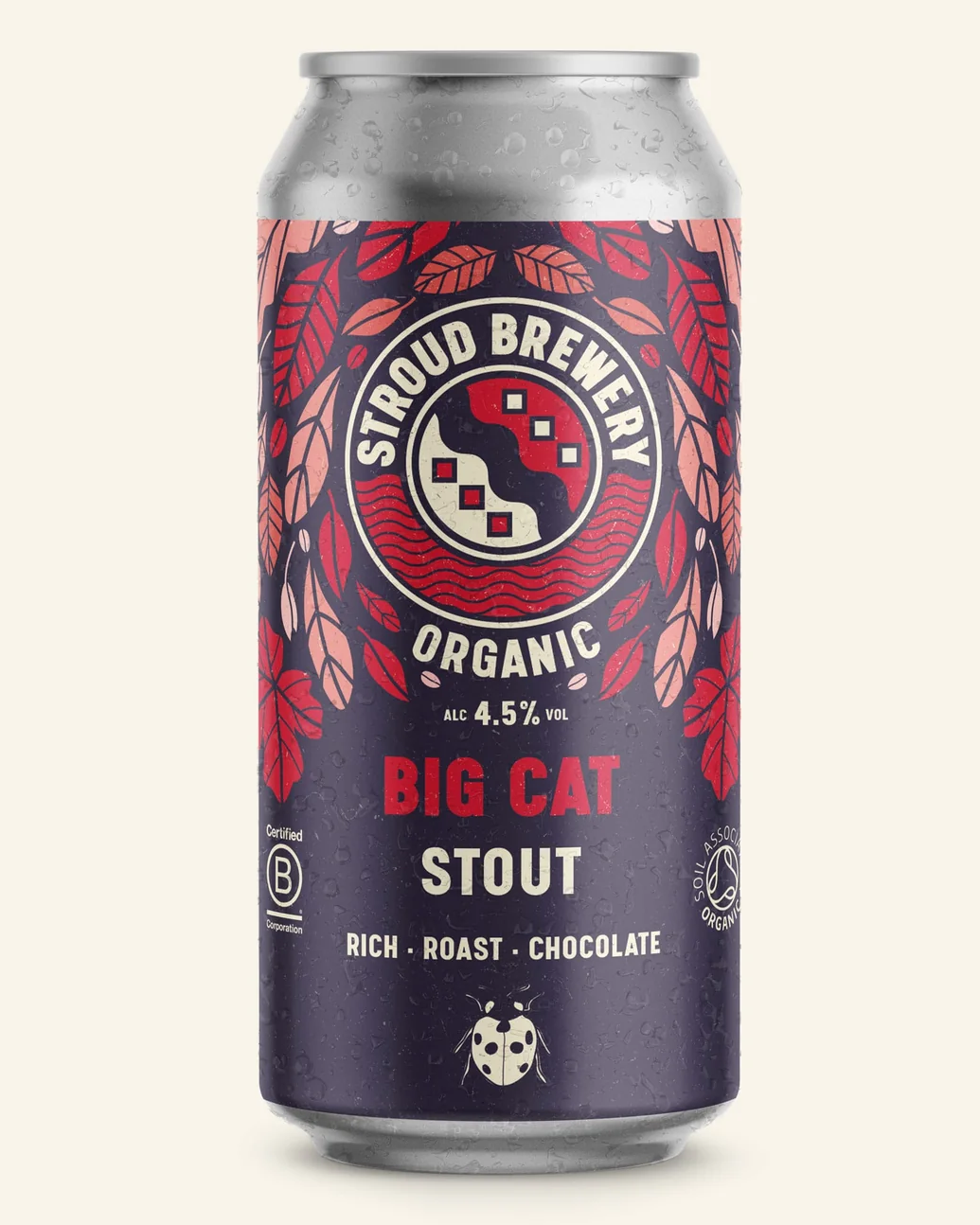
- Organic Lager: Pale, crisp, and clean, with a gentle herbal hop note and a dry finish. It is refreshing without being thin. Keep a few cold for easy pairing with fish-free chips, falafel wraps, or pizza.
- Big Cat Stout: Dark chocolate, roasted barley, and a hint of coffee on the nose. The body is smooth, the bitterness firm but friendly. Great with rich stews, grilled mushrooms, or dark chocolate desserts.
- Budding Pale (bottle): The bottled take on the pale ale keeps its bright hop aroma and snappy finish. It copes well with spicy food, veggie burgers, and anything with herbs.
- Seasonal and specials: Expect occasional limited releases that keep to the vegan brief. These might bring bolder hops or different malts, always with that clear Stroud signature.
Bottled beers hold well when stored upright in a cool, dark place. Aim to drink hop-forward styles within a few months to keep the aroma fresh. Stouts and malt-led beers can sit a little longer. All core bottles are brewed to be vegan friendly, which keeps shopping simple.
Where to Buy Stroud Brewery Beers
Buying Stroud beers is straightforward. You have several options.
- Local stockists: Independent bottle shops, farm shops, and delis in Stroud and across Gloucestershire often carry the core line-up. Ask for Budding, Tom Long, and Organic Lager if you want a safe starting trio.
- Pubs and bars: Use pub finders and local social pages to spot cask lines. Gloucestershire freehouses and tap-led venues regularly rotate Stroud beers on handpull and keg.
- At the brewery: Check opening times for the taproom, tours, and events. Brewery visits add context to the pint and are a good way to try limited releases.
Serving tips at home are simple. For cask-style takeaway or mini-casks, let the beer settle upright, vent gently if required, and serve at cool cellar temperature. For bottles, chill pale styles, keep dark beers a touch warmer, and pour carefully to leave any natural sediment in the bottle. A clean glass makes more difference than most people think.
Support local craft by sharing finds with friends, tipping your pub for quality cellar work, and buying seasonals when they appear. Good beer stays on the bar when people ask for it.

